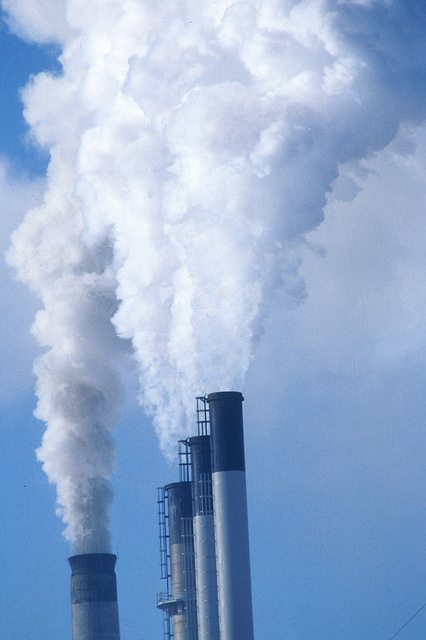

Environment
51% of corporations emitting unsustainable levels of CO2, study finds
A new study has found that more than half of corporations are emitting unsustainable levels of CO2 when the figures are assessed from a science perspective.
Non-profit group Climate Counts analysed the greenhouse gas emissions of 100 global corporations between 2005 and 2012 to determine their performance against science-based goals that seek to limit global average temperature increases to 2C. Scientists say a temperature rise above this threshold would cause widespread damage and increase the frequency of extreme weather events.
Most of the companies reviewed do not use science-based thresholds when setting emission targets. Climate Counts said doing so can be “woefully misleading” as the targets may sound positive but in reality have little impact.
Andrew Winston, author of Green Recovery and co-author of Green to Gold, said, “Companies usually set their targets by asking each division what they can do and then setting a stretch goal. But if you have a problem, you should try to solve all of it, not merely as much as you think you can handle.”
The two companies that scored the highest, Autodesk and Unilever, both have a history of incorporating context based on science into their targets.
Allen White, founder of the Global Initiative of Sustainability Ratings (GISR) and co-founder and former CEO of the Global Reporting Initiative (GRI), commented on the importance of context when addressing sustainability.
He said, “No one has the lock on the science of applications or the concept. But we must refine both, sooner rather than later. We don’t have decades to get serious about context in the light of the ecological and social perils that lie ahead.”
The study also revealed that improving sustainability and revenues can go hand in hand. Of the 49 companies that were ranked as sustainable, 25 exhibited revenue growth even as their emissions declined.
Sustainable performances varied widely by industry, with healthcare, industrials and the telecoms industries the only ones in which more than half of the assessed companies were ranked as sustainable. Unsurprisingly, given their carbon intensive operations, oil and gas and utilities fared poorly, even though the study does not take into account emissions from the use of their products and services.
The report calls for the business community to play a greater role in addressing climate change. In 2012, 40% of the world’s largest economic entities were corporations and as a result corporations can have a considerable impact on climate change efforts.
Further reading:
World on track to use up entire 21st century carbon budget by 2034
IPCC climate report: global temperatures likely to exceed 2C this century
Carbon Trust says engaging workers on energy and waste could save UK £300m
Greenhouse gas 7,100 times more powerful than CO2 discovered


 Environment12 months ago
Environment12 months agoAre Polymer Banknotes: an Eco-Friendly Trend or a Groundswell?

 Features11 months ago
Features11 months agoEco-Friendly Cryptocurrencies: Sustainable Investment Choices

 Features12 months ago
Features12 months agoEco-Friendly Crypto Traders Must Find the Right Exchange

 Energy11 months ago
Energy11 months agoThe Growing Role of Solar Panels in Ireland’s Energy Future




























